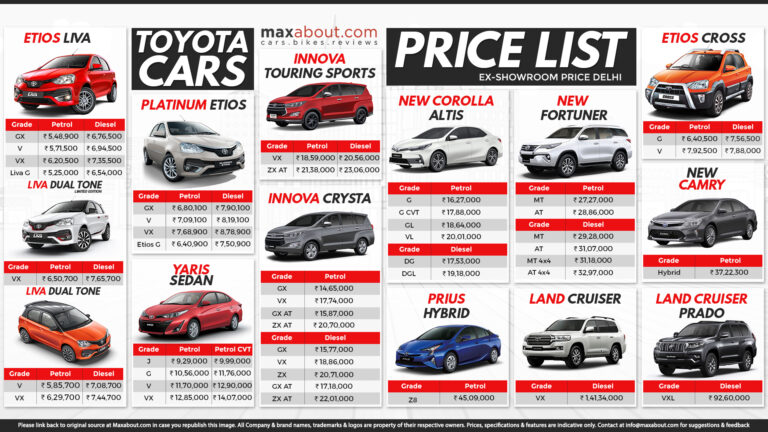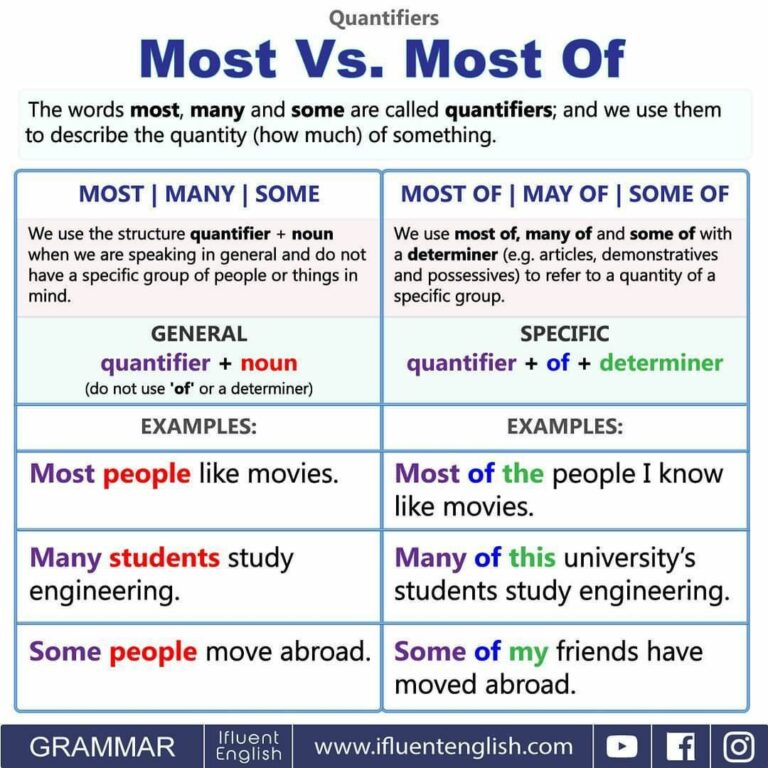Best Car Lift Brands: Elevating Your Automotive World
Best Car Lift Brands: Elevating Your Automotive World cars.truckstrend.com
For any serious automotive enthusiast, professional mechanic, or even a diligent DIYer, a car lift isn’t just a luxury; it’s a transformative tool. It elevates your vehicle, literally and figuratively, making everything from routine oil changes to complex transmission swaps safer, more efficient, and infinitely more comfortable. No more struggling on your back under a jack stand, squinting in poor light, or contorting your body into awkward positions. A quality car lift provides full undercarriage access, improves visibility, and creates an ergonomic workspace that protects your back and knees.
However, investing in a car lift is a significant decision. With numerous brands and models on the market, choosing the right one can be daunting. This comprehensive guide will navigate the landscape of the best car lift brands, exploring their strengths, popular offerings, and what makes them stand out. We’ll also cover crucial considerations, types of lifts, and practical advice to ensure you make an informed choice that perfectly fits your needs and budget.
Best Car Lift Brands: Elevating Your Automotive World
Why Invest in a Car Lift? The Unseen Benefits
Beyond the obvious advantage of lifting a vehicle, a car lift offers a myriad of benefits that enhance productivity, safety, and even the longevity of your automotive projects:
- Enhanced Safety: Eliminates the inherent risks associated with jack stands, offering robust, locking mechanisms that secure the vehicle. ALI (Automotive Lift Institute) certified lifts meet stringent safety standards.
- Improved Ergonomics: Work at a comfortable height, reducing strain on your back, neck, and knees. This translates to less fatigue and a more enjoyable working experience.
- Increased Efficiency: Quick and easy access to the entire undercarriage speeds up repairs, maintenance, and inspections. No more crawling or repositioning jacks.
- Space Optimization: Four-post lifts, in particular, can double your parking space, allowing you to store one vehicle above another – a boon for collectors or those with limited garage space.
- Better Visibility: With the vehicle at eye level, you gain superior visibility of components, making diagnostics and repairs more accurate.
- Versatility: Lifts accommodate a wide range of vehicles, from compact cars to light trucks, depending on their capacity and design.
:max_bytes(150000):strip_icc()/nup_180492_0631-2000-1-947568fc1f424463adfdaf452acb64a2.jpg)
Understanding Car Lift Types
Before diving into specific brands, it’s essential to understand the primary types of car lifts available, as each serves different purposes and fits varying space constraints:
-
Two-Post Lifts:
- Description: These lifts use two vertical columns with arms that extend to cradle the vehicle’s frame. They lift the vehicle by its chassis, leaving the wheels and entire undercarriage completely free.
- Pros: Full wheel-free access, ideal for tire work, brake jobs, suspension, and exhaust. More compact footprint than four-post lifts.
- Cons: Requires precise vehicle positioning. Can be more challenging for storage.
- Variations: Asymmetrical (columns rotated to allow door opening) and Symmetrical (columns directly opposite).
-
Four-Post Lifts:
- Description: Consist of four vertical columns supporting two runways on which the vehicle drives up. The vehicle rests on its wheels.
- Pros: Excellent for vehicle storage (parking lifts), easy drive-on/drive-off, stable, and often preferred for alignment work (when equipped with optional rolling jacks).
- Cons: Limited wheel-free access without additional rolling jacks. Larger footprint.
- Common Uses: Storage, general maintenance, oil changes, alignment.
-
Scissor Lifts:
- Description: Utilize a scissor-like mechanism to raise the vehicle. They are often low-profile and come in various heights.
- Pros: Space-saving, often portable or semi-portable, ideal for tire and brake work, detailing, or quick service.
- Cons: Limited undercarriage access compared to two-post lifts due to the scissor mechanism.
- Variations: Mid-rise (lifts to waist height), Full-rise (lifts to full standing height), Pit-style (recessed into the floor).
-
Portable Lifts (e.g., QuickJack):
- Description: Compact, portable frame-engaging lift systems that can be moved and stored easily.
- Pros: Ultimate portability, ideal for track days, mobile mechanics, or small home garages where permanent installation isn’t feasible.
- Cons: Lower lift height compared to full-size lifts, requires more manual setup.
- Common Uses: Quick tire changes, detailing, basic maintenance.
Key Factors When Choosing a Car Lift
Before committing to a brand, evaluate these critical factors:
- Capacity: What is the heaviest vehicle you plan to lift? Lifts are rated in pounds (e.g., 9,000 lbs, 12,000 lbs). Always choose a lift with a capacity exceeding your heaviest vehicle’s weight.
- Ceiling Height: Crucial for two-post and four-post lifts. Measure your garage’s clear height and factor in the height of the vehicle on the lift.
- Space/Bay Dimensions: Consider the overall footprint of the lift and ensure you have enough room to operate around it safely.
- Power Requirements: Most residential garages have 110V outlets. Many heavy-duty lifts require 220V (single-phase or three-phase) dedicated circuits.
- Safety Features & Certification: Look for automatic safety locks, redundant systems, flow restrictors, and especially ALI/ETL certification, which signifies adherence to rigorous safety standards.
- Build Quality & Materials: Heavier gauge steel, quality welds, durable powder coating, and reliable hydraulic components indicate a long-lasting lift.
- Warranty & Customer Support: A strong warranty (especially on structural components and hydraulics) and readily available parts/technical support are invaluable.
- Budget: Car lifts range from a few hundred dollars for portable units to tens of thousands for commercial-grade, heavy-duty systems.
Best Car Lift Brands: An In-Depth Review
Here are some of the most respected and widely recognized car lift brands, each with its unique strengths:
-
BendPak:
- Reputation: Often considered the industry leader, BendPak is synonymous with quality, innovation, and a vast product range. They are known for robust construction and extensive safety features.
- Strengths: Wide array of two-post, four-post, scissor, and specialty lifts. Excellent for both professional shops and serious home users. Their QuickJack portable lift system is revolutionary.
- Popular Models: XPR Series (2-Post), HD Series (4-Post), RPL Series (Scissor), QuickJack.
- Why they stand out: ALI certified across almost their entire line, strong warranties, widespread dealer network, and a reputation for reliability.
-
Rotary Lift:
- Reputation: A global leader, Rotary is often the preferred choice for high-volume commercial automotive service centers and dealerships. Known for heavy-duty, professional-grade equipment.
- Strengths: Unparalleled durability, cutting-edge technology, and a focus on high-capacity and heavy-duty applications. Their lifts are built to withstand constant use.
- Popular Models: SPOA10 (2-Post), SM Series (4-Post), Scissor Lifts.
- Why they stand out: The gold standard for professional shops, exceptional longevity, and top-tier safety engineering.
-
Challenger Lifts:
- Reputation: A strong contender that balances quality with value, making them popular among both professional and serious home users.
- Strengths: Known for robust construction, excellent safety features (including patented Versymmetric® technology on some 2-post models), and a good warranty.
- Popular Models: CL10 (2-Post), 40150 (4-Post), CX Series (Scissor).
- Why they stand out: Often provide features found in higher-priced lifts at a more accessible price point, good customer support.
-
Forward Lift:
- Reputation: A well-established brand, often seen alongside Rotary and BendPak in professional settings. They offer a range of reliable lifts for various applications.
- Strengths: Solid construction, good performance, and often a more economical choice for professional shops seeking quality without the absolute premium price tag of some competitors.
- Popular Models: DP10 (2-Post), CR14 (4-Post).
- Why they stand out: A trusted name in the commercial sector, offering durable and efficient lifting solutions.
-
Dannmar:
- Reputation: A sister company to BendPak, Dannmar focuses on providing quality lifts, often at a more budget-friendly price point, making them a popular choice for home garages and smaller shops.
- Strengths: Good value, reliable performance for their price, and a decent range of two-post and four-post lifts.
- Popular Models: D-10/AC (2-Post), D-7/X (4-Post).
- Why they stand out: Offers many features of higher-end lifts but at a more approachable cost, making quality lifting accessible.
-
Atlas Automotive Equipment:
- Reputation: Known for offering a wide variety of automotive equipment, including lifts, often at competitive prices. Popular among home users and small commercial shops.
- Strengths: Excellent value, diverse product line, and good entry-level options for those on a tighter budget.
- Popular Models: Atlas 9,000lb 2-Post, Atlas 8,000lb 4-Post.
- Why they stand out: Provides solid, functional lifts at an attractive price point, expanding accessibility to car lifts.
-
Mohawk Lifts:
- Reputation: Specializes in heavy-duty and specialized lifting solutions, often preferred by municipalities, trucking companies, and heavy equipment repair facilities.
- Strengths: Unmatched durability, robust construction, and a focus on safety for heavy-duty applications. Made in the USA.
- Popular Models: System I, System II, various parallelogram lifts.
- Why they stand out: If you’re lifting buses, large trucks, or industrial vehicles, Mohawk is a top-tier choice for safety and longevity.
Practical Advice for Your Car Lift Purchase
- Measure Twice, Buy Once: Seriously, measure your garage ceiling height, bay width, and door clearances multiple times. This is the most common mistake buyers make.
- Foundation First: A concrete slab of sufficient thickness (typically 4-6 inches, 3,000 psi minimum) is crucial for two-post lifts. Consult with the lift manufacturer’s specifications.
- Professional Installation: While some DIYers tackle installation, professional installation is highly recommended for safety and warranty purposes, especially for 2-post and commercial lifts.
- Don’t Skimp on Safety: Always prioritize ALI certification. A cheaper, uncertified lift is not worth the risk of serious injury or property damage.
- Consider Future Needs: Will you be buying a larger vehicle in the future? Do you plan to expand your garage operations? Buy a lift that can grow with your needs.
- Read Reviews and Ask Around: Leverage online reviews and forums. Talk to mechanics or other enthusiasts who own lifts for their real-world experiences.
Estimated Price Range Table for Best Car Lift Brands
Please note: Prices are highly variable based on model, capacity, features, accessories, installation, and regional dealers. These are estimated ranges for popular lift types from each brand and should be used for general comparison only. Always obtain current quotes from authorized dealers.
| Brand | Popular Lift Type (Capacity) | Estimated Price Range (USD) | Key Feature/Specialty |
|---|---|---|---|
| BendPak | 2-Post (9,000-10,000 lbs) | $4,000 – $7,000+ | Industry leader, wide range, ALI certified, innovative |
| 4-Post (8,000-12,000 lbs) | $4,500 – $8,000+ | Versatile storage & service, ALI certified | |
| QuickJack (Portable, 5,000-7,000 lbs) | $1,400 – $2,000+ | Ultimate portability, track/home use | |
| Rotary Lift | 2-Post (10,000-12,000 lbs) | $6,000 – $10,000+ | Commercial-grade, extreme durability, professional |
| 4-Post (12,000-18,000 lbs) | $8,000 – $15,000+ | Heavy-duty professional use, alignment ready | |
| Challenger Lifts | 2-Post (10,000 lbs) | $3,800 – $6,500+ | Quality & value, good safety features, ALI certified |
| 4-Post (12,000 lbs) | $5,500 – $8,500+ | Robust for shops, ALI certified | |
| Forward Lift | 2-Post (10,000 lbs) | $3,500 – $6,000+ | Reliable commercial choice, good value, ALI certified |
| 4-Post (12,000 lbs) | $5,000 – $8,000+ | Durable for professional use | |
| Dannmar | 2-Post (9,000-10,000 lbs) | $3,000 – $5,000+ | Great value for home garages & small shops |
| 4-Post (7,000-9,000 lbs) | $3,500 – $5,500+ | Economical storage & light service | |
| Atlas Automotive Eq. | 2-Post (9,000-10,000 lbs) | $2,500 – $4,500+ | Budget-friendly, wide product range |
| 4-Post (8,000-10,000 lbs) | $3,000 – $5,000+ | Affordable storage & maintenance | |
| Mohawk Lifts | 2-Post (10,000-30,000 lbs+) | $8,000 – $20,000+ | Heavy-duty, industrial, made in USA, superior safety |
| 4-Post/Specialty (18,000-100,000 lbs+) | $15,000 – $50,000+ | Extreme capacity, robust for commercial/municipal |
Frequently Asked Questions (FAQ)
Q1: Is ALI certification really that important?
A1: Absolutely. ALI (Automotive Lift Institute) certification means the lift has been tested by an independent third party to meet rigorous national safety and performance standards (ANSI/UL 201). It’s a non-negotiable for safety and peace of mind.
Q2: How much ceiling height do I need for a car lift?
A2: For a full-rise two-post or four-post lift, you generally need a minimum of 11-12 feet of clear ceiling height. This allows for the lift’s full extension plus the height of the vehicle on top. Always check the specific lift’s specifications.
Q3: Can I install a car lift myself?
A3: While some mechanically inclined individuals might attempt it, professional installation is strongly recommended, especially for two-post lifts. Proper anchoring, leveling, and hydraulic connections are critical for safety and to maintain the warranty.
Q4: What’s the main difference between a 2-post and a 4-post lift?
A4: A 2-post lift lifts the vehicle by its frame, leaving the wheels hanging free for tire, brake, and suspension work. A 4-post lift has runways the vehicle drives onto, supporting it by its wheels, making it ideal for storage, general maintenance, and alignments (with rolling jacks).
Q5: What power supply do I need for a car lift?
A5: Most residential-grade lifts (9,000-10,000 lbs) often require 220V, single-phase power with a dedicated 30-amp or 40-amp circuit. Some lighter-duty or portable lifts may run on 110V. Heavy-duty commercial lifts often require three-phase power. Always check the lift’s electrical requirements.
Q6: How often should I maintain my car lift?
A6: Regular maintenance is crucial. This includes daily visual inspections, checking fluid levels, inspecting cables and sheaves for wear, and ensuring safety locks engage properly. Most manufacturers recommend professional annual inspections.
Q7: Are cheaper car lifts safe?
A7: Not necessarily. While some budget brands offer decent value, heavily discounted lifts often cut corners on materials, design, and safety features. Always prioritize ALI certification and a reputable brand, even if it means a higher upfront cost. Safety should never be compromised.
Conclusion
Choosing the best car lift brand is a pivotal decision that directly impacts the safety, efficiency, and enjoyment of your automotive work. Whether you’re a professional shop owner or a dedicated home mechanic, investing in a high-quality lift from a reputable brand like BendPak, Rotary, Challenger, or others discussed here will pay dividends in time saved, back pain avoided, and peace of mind.
Prioritize safety certifications, assess your space and power requirements diligently, and consider your long-term needs. With the right car lift, you’re not just buying a piece of equipment; you’re investing in a more productive, safer, and ultimately more rewarding automotive experience.





